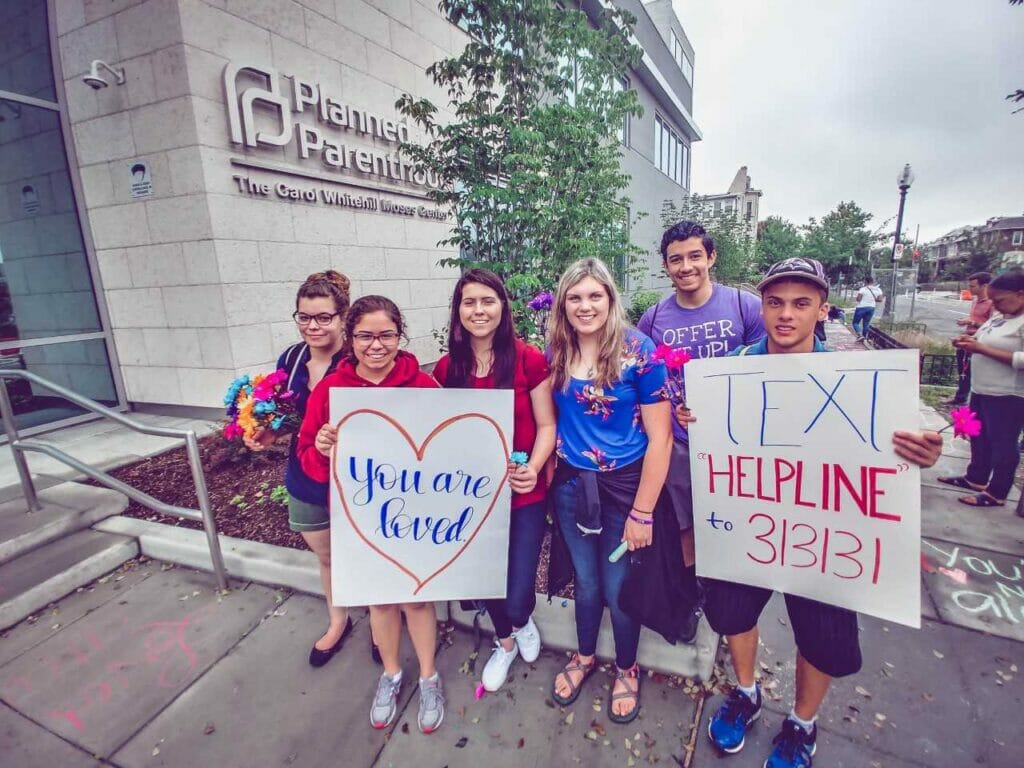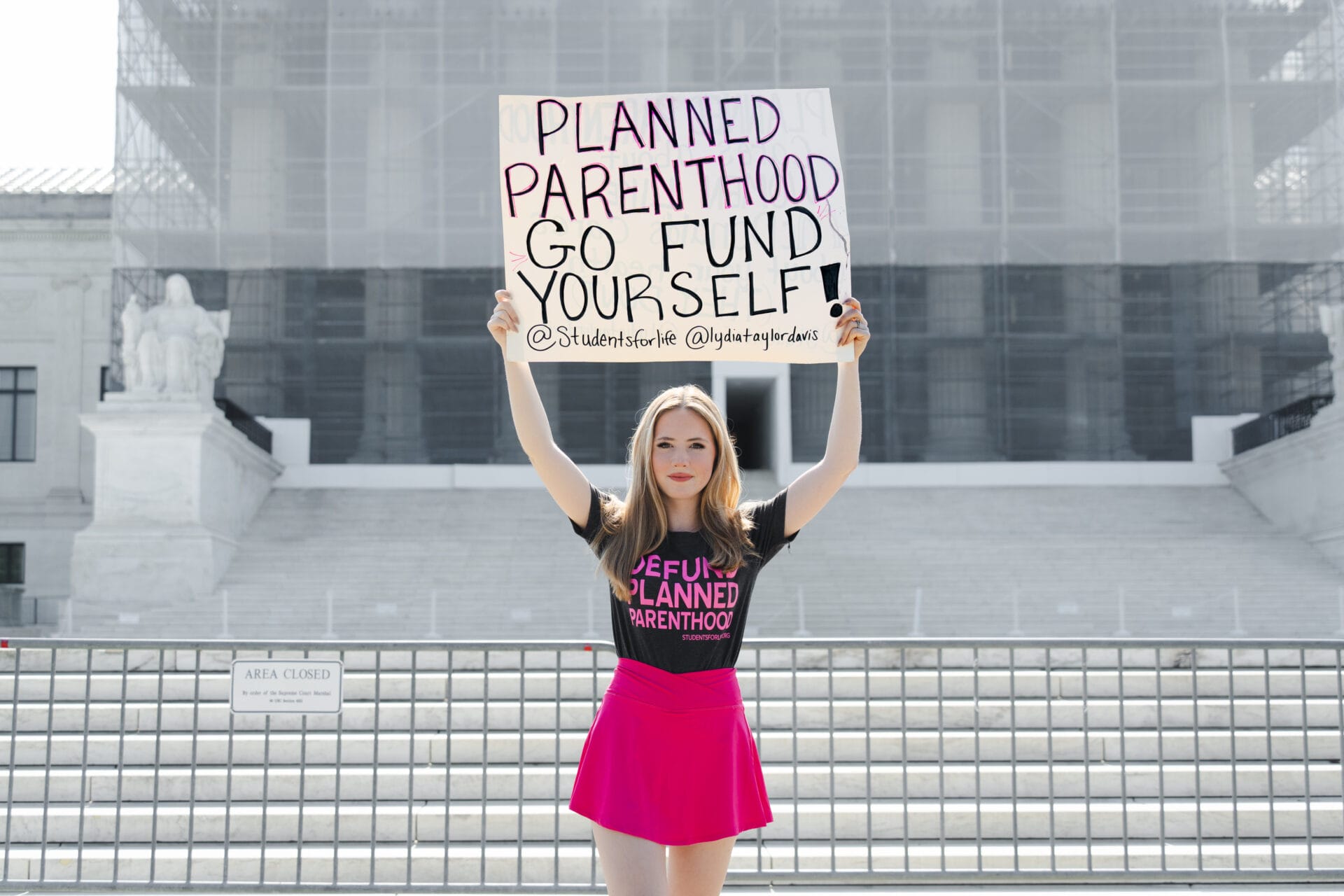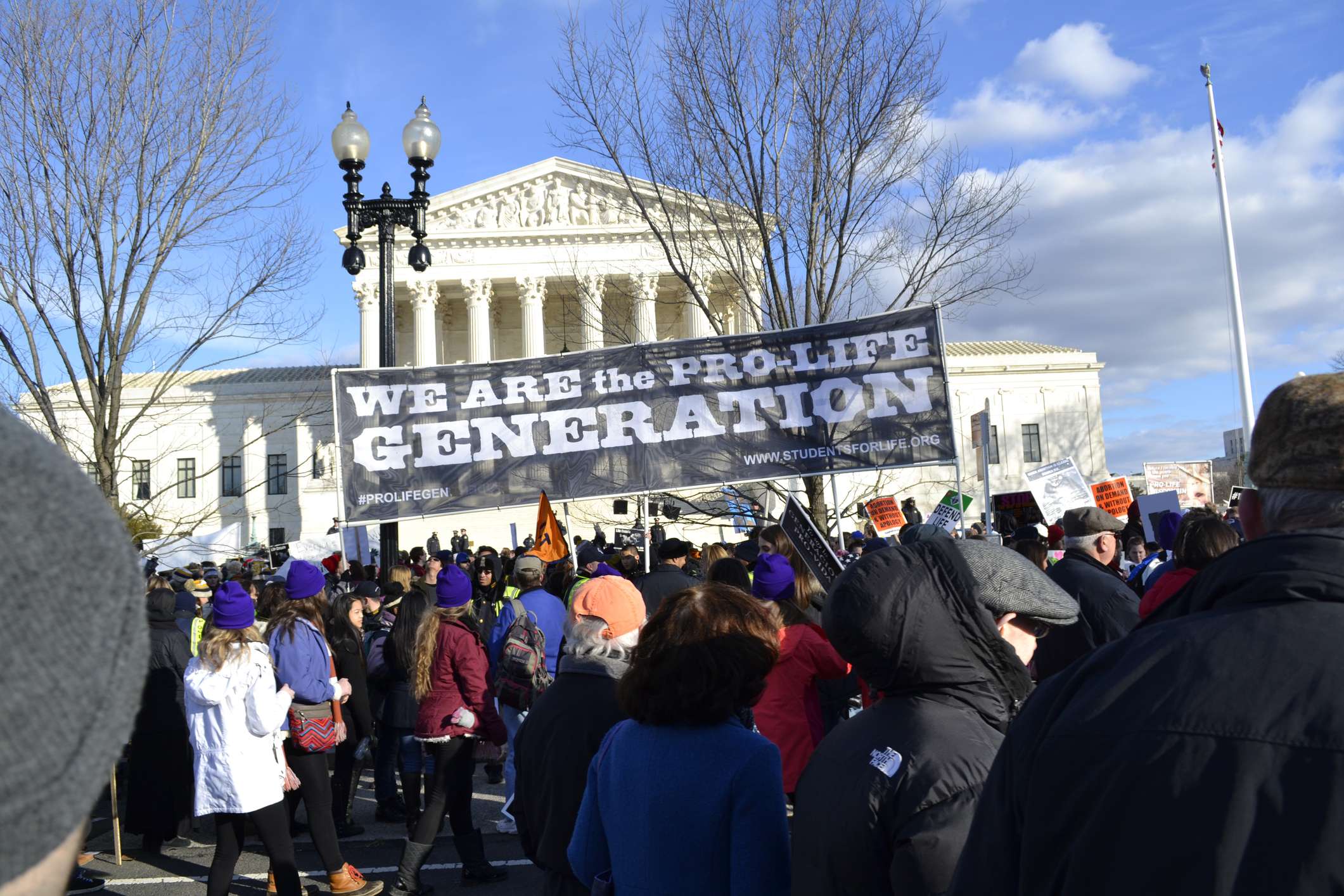
October is upon us, and there’s more than just pumpkin spice lattes to be excited about — the Supreme Court of the United States (SCOTUS) has just opened its term for 2023! Right now, SCOTUS is issuing order lists, which means the Justices are granting or denying reviewing the cases that have been brought before them. Students for Life of America (SFLA) has filed amicus briefs in three such cases, and we’re eagerly waiting to see if they get picked up.
These cases ask questions which are fundamental to the success of the pro-life movement, and you should definitely be keeping an eye on whether the Court grants them review. In the meantime, here’s what you need to know about their background:

Vitagliano v. County of Westchester
The question at hand: Are you free to speak up for women and the preborn everywhere?
The County of Westchester, New York is attempting to circumvent the First Amendment’s protection of free speech in a traditional public forum: a sidewalk. SFLA and the pro-life movement in general often relies on person-to-person sidewalk counseling that includes passing out literature and engaging in oral education and discussion. We’ve seen many women helped and babies saved through these means — yet the ordinance that is being directly affects our ability to do just this.
After filing an amicus brief in support of Debra A. Vitagliano in August 2023, SFLA reported:
“The question presented in this case is whether the Court should overrule a previous decision in Hill v. Colorado (2000), which banned persons with the intent of “engaging in oral protest, education, or counseling” (read: pro-lifers) from approaching another person within eight feet outside of abortion facilities unless that person consents. The law specifically disallows counseling but permits activities such as wearing a hot dog costume to advertise a restaurant.”

“Everyone should be held to the same standards when peacefully sharing views in public, whether handing out flyers to advertise a restaurant or telling a young mother about free resources. The anti-baby bias of government should not lead to viewpoint discrimination, even among those who disagree on abortion,” said SFLA President Kristan Hawkins. “Free speech has been a winning issue lately. A Washington D.C. appellate court recently allowed Students for Life of America’s free speech case in Washington D.C. to advance. Our hope is that SCOTUS will continue our winning streak.”
Alliance for Hippocratic Medicine, et al. v. F.D.A., et al.
The question at hand: Can a federal agency ignore health and safety standards because biased bureaucrats support abortion?
Pro-life physicians have filed a lawsuit from Texas, arguing that the FDA failed to protect the health of women and girls from the dangers of Chemical Abortion Pills, especially when it comes to young girls. SFLA agrees, arguing that the problems with testing are severe and include the lack of environmental testing. SFLA has asked the Court to consider the FDA’s failure to follow the Endangered Species Act while making Mifepristone (one of the two drugs in the Chemical Abortion Pill regimen) progressively more accessible since its original approval of the drug in 2000.

The FDA must revisit their approvals and deregulations over the last 23 years and comply with the ESA’s mandate that federal agencies consult with the U.S. Fish and Wildlife Service and National Marine Fisheries Service to ensure their actions do not harm endangered species or habitats.
On our website, SFLA has reported that the Clinton, Obama, and now Biden Administrations have failed to ensure that Chemical Abortion Pills are not harming the environment and endangered species. In the brief found here, we call for approval of the drug to be revoked until the required environmental testing.
We note: “When the FDA made significant changes to the Mifepristone regimen and REMS in 2016, 2019, 2021, and 2023, the agency simply failed to conduct any ESA consultation or environmental assessment. This failure clearly violated the ESA and must be corrected immediately—especially in light of the FDA’s removal of the in- person dispensing requirement, which opened the floodgates to do-it-yourself home abortions, followed by disposal of Mifepristone into our nation’s water supply.”

Loper Bright Enterprises v. Raimondo & Relentless, Inc. v. U.S. Dept. of Commerce
The question at hand: Can a federal agency make up and then enforce arbitrary rules on everything from fishing to abortion?
Various federal agencies have hidden behind Chevron deference to push deadly abortion pills to market. SFLA joined a brief in these intertwined cases to protect American students from the dangers of the abortion industry and government overreach, as well as to preserve the Constitution for the next generation. The Loper case (which our brief is filed in) relates to oppressive requirements demanded of fishermen by the EPA. Read more here at SCOTUS blog.
On our blog, we show the abusive use of Chevron when it comes to abortion, reporting:
“When it comes to abortion, Chevron deference is important because No Test, Online Distribution of Chemical Abortion Pills wasn’t set up with a law, but with regulations. The Food and Drug Administration (FDA) has weaponized their deference on matters of public health and drug safety to defend its politicized stance on mifepristone, one of the two culprits in Chemical Abortions (also known as medication abortions).

“Chevron deference is particularly dangerous in regard to the FDA when you consider the agency’s position within the hierarchy of the executive branch of the federal government. The FDA is an agency within the Department of Health and Human Services (HSS), where both the Secretary of HHS and the Commissioner of Food and Drugs are appointees of the current President of the United States who is clearly an abortion extremist.”
To confront the abusive use of Chevron, which basically allows agencies to make up their own rules and then enforce them, SFLA joined a brief filed by Advancing American Freedom. The brief found here, notes the problems with letting runaway agencies be judge, jury, and executioner when it comes to the law and the penalties.
Stay tuned to the SFLA blog for news of these cases being picked up!
EDITOR’S NOTE: Unfortunately, Vitagliano v. County of Westchester did not get picked up by SCOTUS.
Written with research and content help from SFLA Chief Media & Policy Strategist Kristi Hamrick.
Share this post
Recent Posts

National Celebrate Life Weekend Dominates D.C.: Just Look at the Coverage
01 Jul 2025
The Pro-Life Generation REACTS: “Big, Beautiful” Budget Bill Vote One Step Closer to Defunding Planned Parenthood & ALL Abortion Vendors
01 Jul 2025
News: FIVE Lawmakers Recognized for Defending Life
30 Jun 2025

